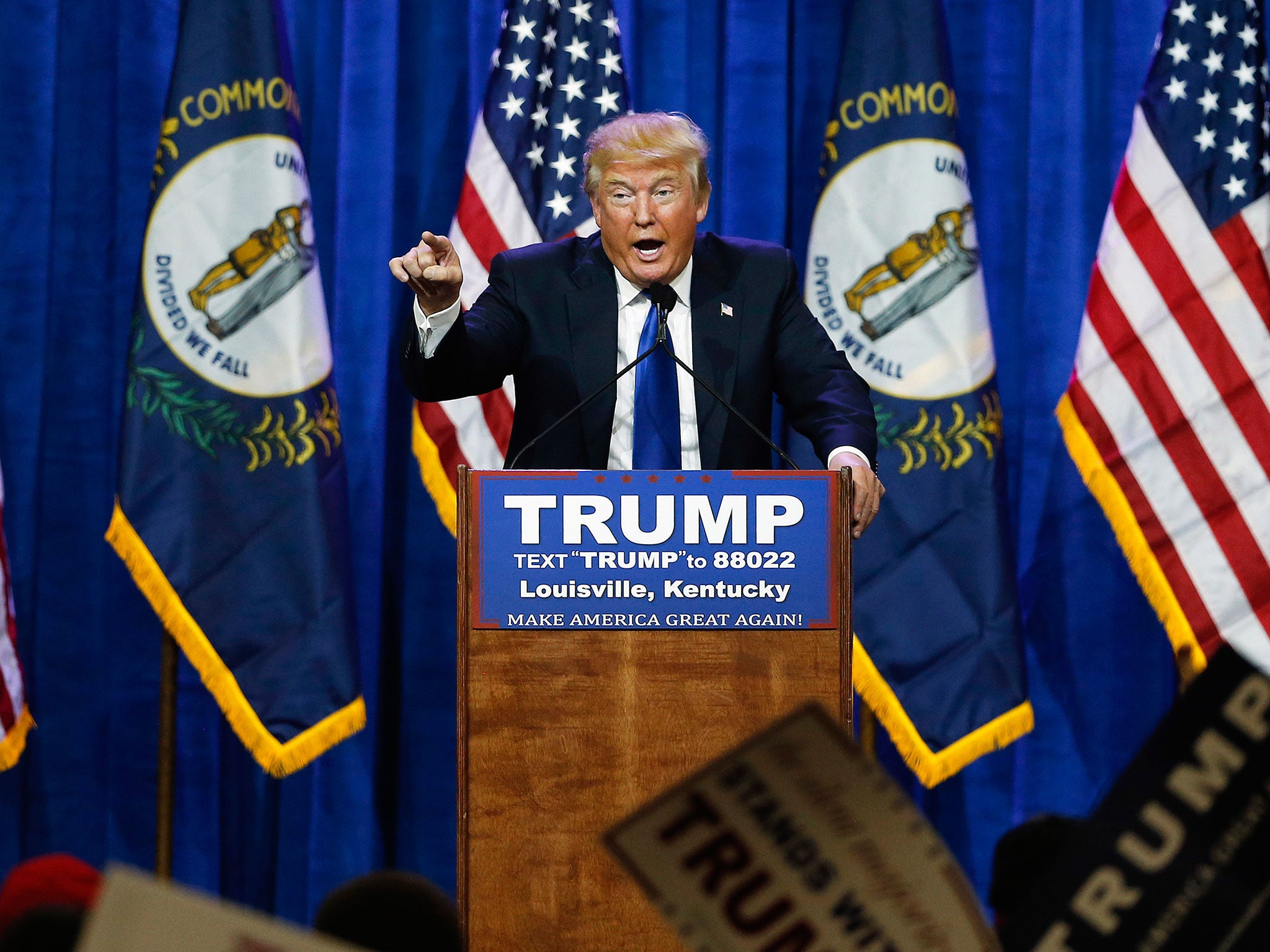US Election 2016: Who is leading the Republican establishment’s fightback efforts against Donald Trump?
The billionarie's runaway success in the race for the GOP's presidential nomination is his party's worst nightmare. This is the (muddled) way Republican big-hitters want to check his relentless rise

They are members of Congress, stalwarts of the Republican National Committee, election strategists, conservative commentators, warriors of former Republican administrations and big-time donors. They are the “Party establishment” and they are all over the place on the issue that is Donald Trump.
1. Stuart Stevens
A former top adviser to Mitt Romney and a professional strategist, he has been urging the other candidates to get tougher with Mr Trump, for months. “I think Hillary Clinton would be a better president than Donald Trump,” he said. “I have no desire to see Hillary Clinton as president of the United States. But if this is the choice – I will not give her my vote, but I can’t support Donald Trump.”
2. Mitch McConnell
The Senate Majority Leader has not gone after Mr Trump directly, but when “The Donald” failed last weekend flatly to reject the KKK and disavow support from David Duke, a former Grand Wizard, he could no longer hold his tongue. “That is not the view of Republicans that have been elected to the [US] Senate, and I condemn his comments in the most forceful way.”
3. Reince Priebus
The chairman of the Republican National Committee would be the first person to relish seeing Mr Trump go down but is the last person who can say so. Which means he has been painfully coy. “It’s a big party,” he attempted last week. “We’re in great shape to win in November. But yeah, we have drama, there’s some intrigue… But there’s intrigue going on the other side too.”
4. Erick Erickson
A conservative bullhorn and former RedState editor, Mr Erickson is more outspoken. “I’m absolutely not going to vote for Donald Trump, even if he’s the Republican nominee.” On Twitter he aired a novel anti-Trump unity proposal. “A Cruz-Rubio ticket makes the most sense… Pair up, announce the deal. Let Rubio win Florida, get to convention and make it so.”
5. William J Bennett
Education Secretary under Ronald Reagan, Mr Bennett is in the camp that opposes any attempt artificially to deny Mr Trump the nomination. “I’m used to being the moral scold, but Trump is winning fair and square, so why should the nomination be grabbed from him?” he asked. “We’ve been trying to get white working-class people into the party for a long time... and we’re going to alienate them? I don’t get it.”
6. Tim Miller
Until recently an aide to Jeb Bush, he is now the public face of Our Principles PAC, which is already spending millions on anti-Trump ads in states still to vote. “He’s completely un-electable in a general election against Hillary Clinton. Hillary Clinton could get indicted by the FBI, go to jail, she would still win 48 out of 50 states against Donald Trump.”
Brokered convention: Who wins if no one wins?
Under normal circumstances the term is irrelevant. This madcap race to the White House, however, is anything but normal and many are wondering if a “brokered convention” may decide the Republican nominee for President.
It would come after no candidate has secured enough delegates to win the nomination. In that case, the convention becomes a desperate scramble to secure delegates in a series of increasingly fraught votes.
Donald Trump may go to the Republican national convention in Cleveland in July with far more delegates than any of his rivals but not the majority – 1,237 out of 2,472 – to win on the first round.
The heads of the Grand Old Party will hope to have the matter settled long before July, to have a coronation convention, not a contested one, with the sought-after party unity on display ahead of a battle against, probably, Hillary Clinton. But to achieve that, the party will have to rally around Donald Trump. Hence the furrowed brows among senior Republican strategists.
There hasn’t been a brokered convention since 1952, when Illinois Governor Adlai Stevenson won the Democrat Party nomination but lost the general election.
Sam Masters
Subscribe to Independent Premium to bookmark this article
Want to bookmark your favourite articles and stories to read or reference later? Start your Independent Premium subscription today.

Join our commenting forum
Join thought-provoking conversations, follow other Independent readers and see their replies